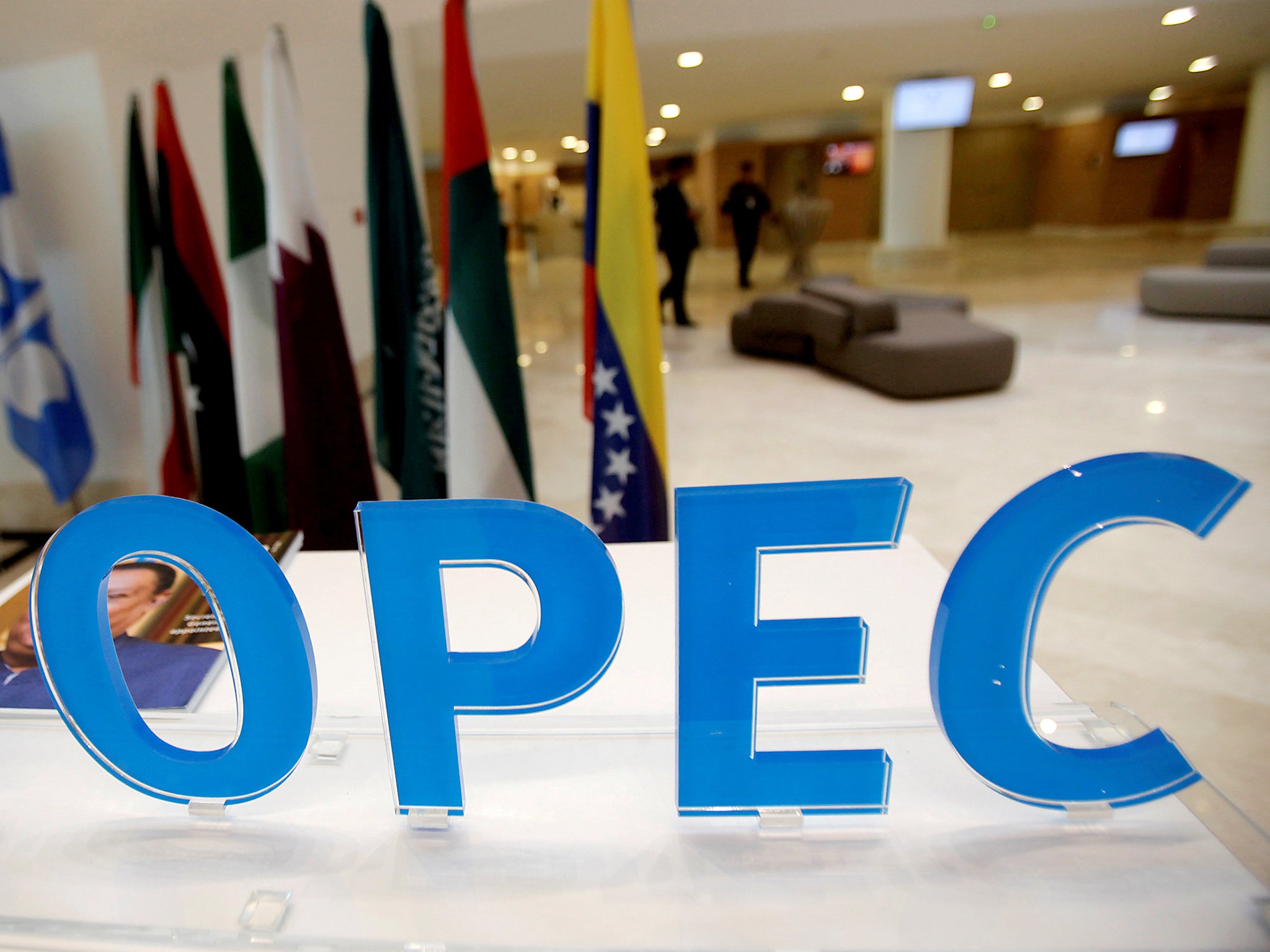Opec may have done the world a good turn for once
The more expensive oil and gas are, the greater the financial pressure to shift to non-carbon alternatives

Your support helps us to tell the story
From reproductive rights to climate change to Big Tech, The Independent is on the ground when the story is developing. Whether it's investigating the financials of Elon Musk's pro-Trump PAC or producing our latest documentary, 'The A Word', which shines a light on the American women fighting for reproductive rights, we know how important it is to parse out the facts from the messaging.
At such a critical moment in US history, we need reporters on the ground. Your donation allows us to keep sending journalists to speak to both sides of the story.
The Independent is trusted by Americans across the entire political spectrum. And unlike many other quality news outlets, we choose not to lock Americans out of our reporting and analysis with paywalls. We believe quality journalism should be available to everyone, paid for by those who can afford it.
Your support makes all the difference.It is not often that the interests of an industry cartel and the global environment are aligned, but the Opec agreement to limit oil production may prove to be just one. The agreement, for the first cut in eight years, had an immediate impact on the oil market. The benchmark Brent crude rose by about 8 per cent to more than $50 a barrel. Since the dollar has been strengthening this year – it touched a 14-year high earlier this month – the underlying rise in the price of oil has been even greater.
The decision is welcome in a number of ways. For a start, it shows that two historic enemies in the Middle East, Saudi Arabia and Iran, are able to settle their differences for the oil industry’s greater good. And it shows that Iraq can be swept into a wider agreement. All this bodes well for stability in a notoriously unstable region.
In addition, higher prices will feed through into other energy prices, and into the global supply chain. Petroleum is an important chemical feedstock. Under normal circumstances more expensive energy and higher inflation would be unwelcome. But in the present world of falling prices in many countries and zero or near-zero interest rates, a little inflation would be helpful. It would reinforce the return to more normal financial conditions associated with a fiscal stimulus in the US and elsewhere.
But perhaps the most solid reason for welcoming higher oil prices would be the support it will give to the renewable energy industries. The more expensive oil and gas are, the greater the financial pressure to shift to non-carbon alternatives. At the moment most alternative sources of energy require subsidies to make them competitive. The price of alternatives – solar power in particular – is falling fast and the world is already close to the point where in some regions no subsidies will be required. The declining cost of electricity storage further increases the attraction of non-carbon energy. The higher the oil and gas prices, the closer that tipping point.
The rise in the oil price, if sustained, will have two other substantial effects: it will help shore up public finances in Russia; and it will support uplift in oil production in the US.
Russia depends on energy and raw material exports, which together account for some 80 per cent of its foreign currency earnings. It is also a vital source of tax revenue. It has been calculated that to balance its budget, Russia needs an oil price of around $100 a barrel. That may be too high, and in any case it will have been reduced the fall of the rouble. Nevertheless the plain truth is that more expensive oil will bring financial relief to Russia, though quite how it responds in political terms is unclear.
As for the US, its shale oil industry has been the main force disrupting the global oil balance – without it, the collapse of the oil price two years ago would hardly have happened. Now there will be some recovery of production and that will limit the climb. But that, surely, is not a bad outcome for the world as a whole: more expensive oil, but not so expensive as to disrupt the world economy. Opec may for once have done the world a good turn.
Join our commenting forum
Join thought-provoking conversations, follow other Independent readers and see their replies
Comments